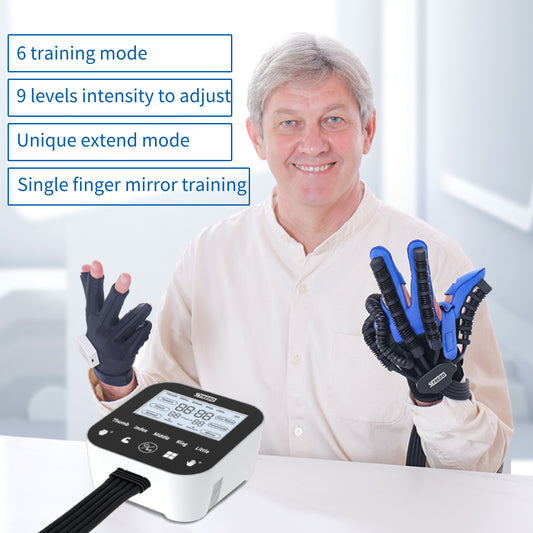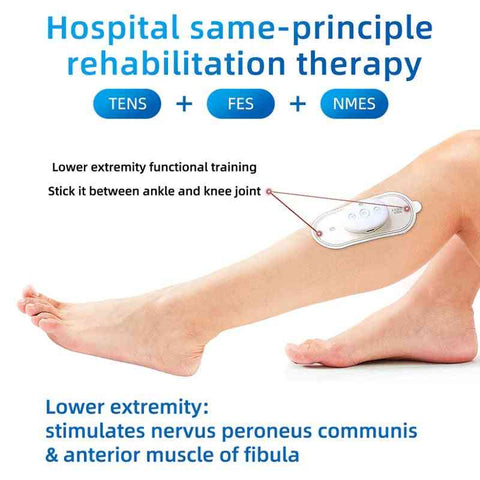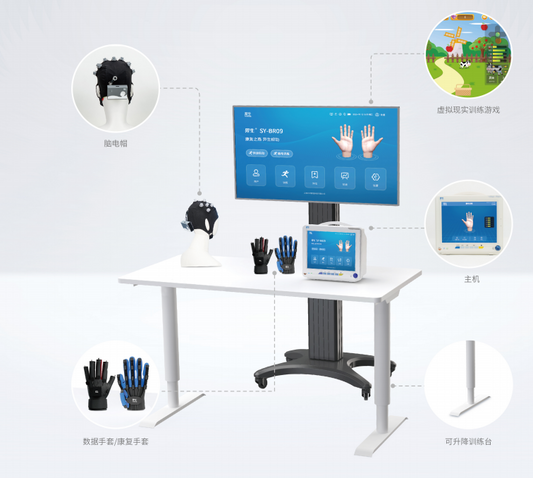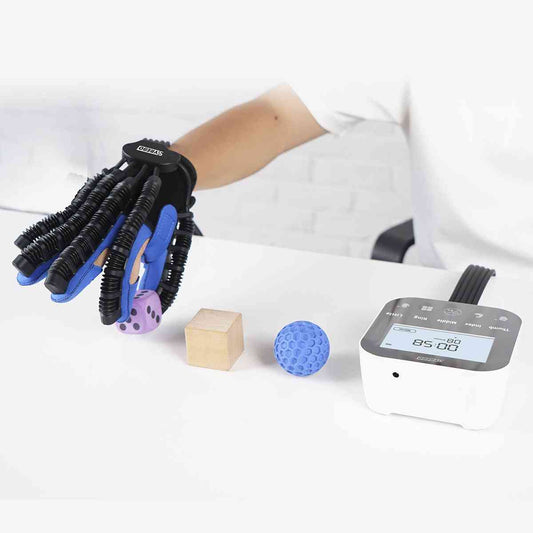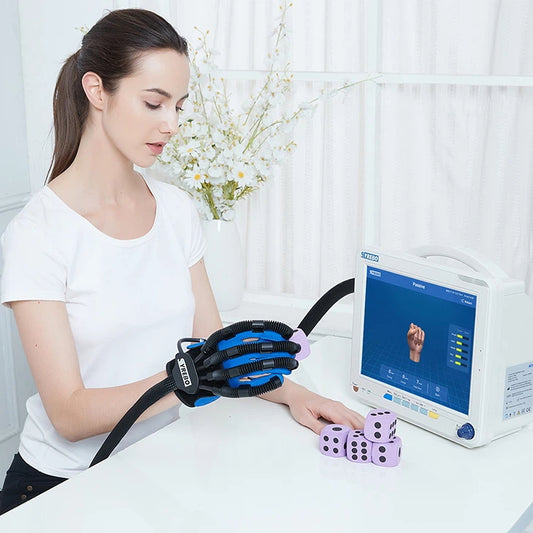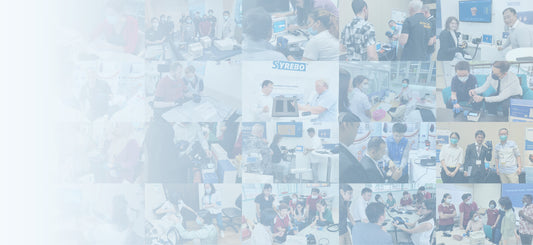Transcutaneous Electrical Nerve Stimulation (TENS)
What is a TENS unit, and does it work?
Transcutaneous electrical nerve stimulation (TENS) devices work by generating tiny electrical impulses through electrodes that have adhesive pads that attach them to a person's skin. Studies have not proven it to be effective, but it appears to provide pain relief during use.
It may help treat menstrual pain, arthritis, fibromyalgia, and other types of pain. The electrical impulses flood the nervous system, reducing its ability to send pain signals to the spinal cord and brain.
The same electrical impulses also stimulate the body's production of natural painkillers called endorphins. In this article, you will learn more about the uses of TENS machines and the research on their effectiveness.
Health conditions treated with TENS
Healthcare providers use transcutaneous electrical nerve stimulation (TENS) to treat a wide range of acute (short-term) and chronic (long-term) conditions, including:
- Arthritis: The TENS unit relieves joint pain and stiffness caused by osteoarthritis, rheumatoid arthritis, psoriatic arthritis, and more.
- Menstrual Pain: Contractions of the uterine wall during menstruation can cause mild to severe menstrual pain, which affects many women.
- Pelvic pain due to endometriosis: If you have been diagnosed with endometriosis, you may experience both pelvic pain and period pain. This discomfort is caused by endometrial tissue growing outside the uterus (such as in the fallopian tubes or ovaries).
- Labor pain: TENS therapy is known to relieve lower back pain during the early stages of labor.
- Knee Pain: TENS units can help with knee problems caused by injuries or certain medical conditions.
- Neck Pain: Neck pain is often caused by poor posture, nerve compression, injury, or poor sleep posture, and recurring neck pain can be treated with TENS therapy.
- Back Pain: Unfortunately, lower back pain is a medical problem that plagues people of all ages. Although TENS therapy is sometimes recommended as a potential treatment, its efficacy has not been supported by extensive research.
- Sports Injuries: You may suffer a sports injury as a result of an accident, over-exertion, poor technique or use of inappropriate equipment, or failure to warm up properly.
- Fibromyalgia: This is a chronic condition characterized by generalized pain, fatigue, sleep disturbances, and memory problems. Some researchers have noted that TENS therapy is an effective method of pain relief, especially when combined with regular exercise.
- Muscle, bone, or joint problems associated with osteoporosis
- Cancer pain
- Neuropathic pain
Keep in mind that there is no conclusive scientific evidence of any benefit from using a TENS unit to treat pain. Doctors say that TENS therapy works well for some people, but results vary greatly from person to person and from case to case. TENS therapy does not cure pain permanently but only provides short-term relief.
How does a TENS unit work?
The TENS unit is about the size of a small cell phone. It comes with several sets of electrodes, wires, and end pads. It works as follows:
- One end of the electrode is attached to the TENS unit, and the other end has 2-inch by 2-inch pads.
- Each pad has an adhesive backing to stick to your skin.
- You (or your healthcare provider) place the pads on the skin along the nerve pathways in the affected area.
- The TENS unit sends out pulses of electrical energy.
- You can adjust the intensity, frequency, and duration of the pulses. (The goal is to adjust the settings until the electrical pulses feel strong but comfortable.)
During treatment, TENS therapy usually helps relieve pain. However, the degree of pain relief after treatment varies from person to person. Some people claim to feel better for up to 24 hours after treatment. Others say that as soon as they turn off the TENS unit, the pain comes back.
When to avoid TENS
Although it is safe for most people, experts recommend that certain groups of people avoid TENS treatment unless their doctor recommends its use.
This advice applies to the following people:
- Pregnant women: Pregnant women should avoid using TENS on the abdomen and pelvic area.
- People with epilepsy: Using electrodes on the head or neck of people with epilepsy may trigger seizures.
- Cardiac patients.
- People with pacemakers or other types of electronic or metal implants.
Side effects and risks
TENS has very few risks or side effects if the following precautions are followed:
- Check with your doctor or physical therapist to make sure that using a TENS machine is safe for you.
- Do not use a TENS machine if you have a pacemaker or other implanted electronic device. If you have epilepsy, deep vein thrombosis (DVT), heart problems, cancer, numbness, allergies, or fragility of the skin, check with your physiotherapist to make sure that TENS is a safe option for treating pain.
- TENS can also be used if you have any of these conditions, but you must seek advice from your physiotherapist or doctor first.
- Generally, TENS can be used in early pregnancy, but not on the abdomen or lower back. Again, you must check with your physiotherapist or doctor to see if TENS is safe for your condition.
- Do not place the electrodes in front of the neck, above the eyes, on the head, or in the mouth.
- Do not use TENS while driving, using the machine, sleeping, or bathing.
- The skin may be slightly red and itchy when the electrodes are removed, but this will soon disappear. It is important to monitor your skin regularly after using TENS to ensure it remains healthy.
- If redness, itching, and pain persist, contact a physiotherapist, GP, or pharmacist for advice. Some people have more severe skin reactions to TENS and may need to stop using it temporarily to allow the skin to recover.
- If you intend to use TENS when traveling by air, please inform the airline first.
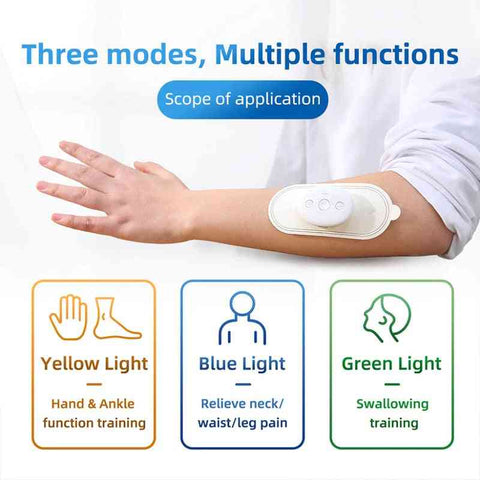
Where can you buy them?
You do not need a prescription to buy a TENS machine at Syrebocare. Ask your doctor to refer you to a physiotherapist so you can try it out first. The physiotherapist can show you how to use the machine properly and let you try TENS for a few hours each day until you get used to it.
After that, your doctor will encourage you to use TENS regularly throughout the day when you need pain relief. This is because, although the pain may last for a few hours after use, the effect may be short-lived.
TENS is safe, so you can use it as often as you like, but it's good practice to take a 10-minute break every hour or so. Some people use TENS for more than five hours a day.
It may be worth buying a TENS machine for home use. Order now for fast shipping and great deals.


